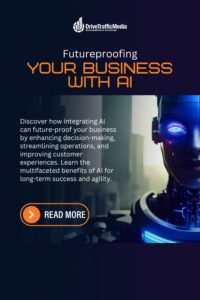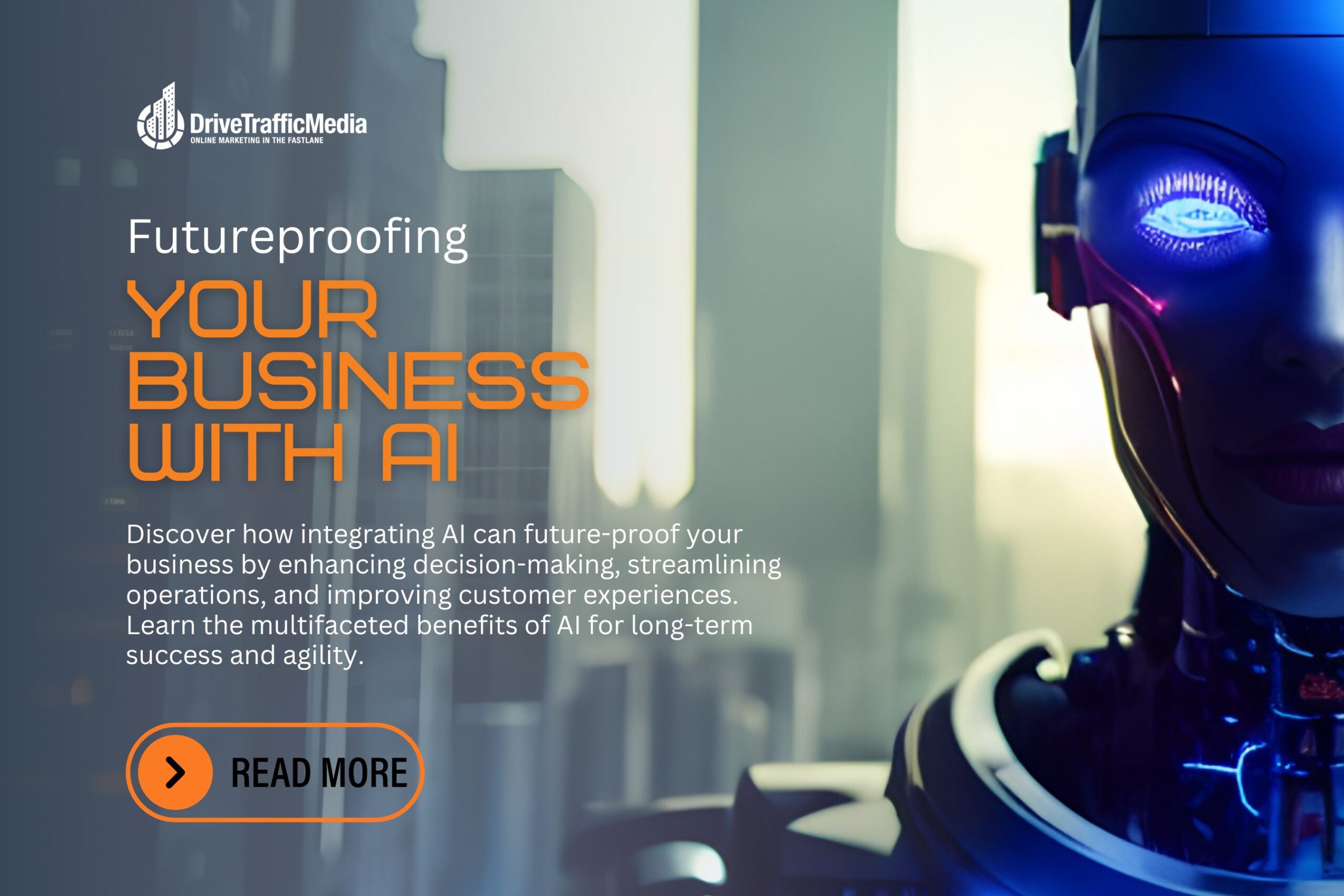In an era characterized by very swift technological advancements and dynamic market conditions, future-proofing your business is essential for sustained success and competitiveness. Integrating artificial intelligence (AI) into your operations is a powerful strategy to ensure your business remains agile, efficient, and capable of navigating future challenges. Here’s how AI can future-proof your business across various dimensions:
Enhancing Decision-Making and Strategy
AI excels at processing and assessing vast amounts of data to generate actionable insights. Businesses can make more informed decisions grounded in real-time data and predictive analytics by leveraging AI-powered analytics. This capability allows companies to anticipate market trends, customer preferences, and potential disruptions, enabling proactive rather than reactive strategies. For instance, AI can analyze consumer behavior to predict future buying patterns, helping businesses adjust their product offerings and marketing strategies accordingly.
Streamlining Operations and Reducing Costs
Automation is one of AI’s most significant contributions to future-proofing businesses. By automating repetitive and time-consuming tasks, AI increases operational efficiency and reduces human error, leading to cost savings. From customer service chatbots handling routine inquiries to AI-driven supply chain management optimizing inventory levels, automation helps streamline operations. This efficiency cuts significant costs and frees up human resources to focus on higher-value activities such as innovation and strategic planning.

Improving Customer Experience
AI enables businesses to offer personalized and responsive customer experiences, which is crucial for maintaining customer loyalty in a competitive market. Through AI-powered tools like chatbots, recommendation engines, and personalized marketing campaigns, businesses can provide tailored interactions that meet individual customer needs. This level of personalization enhances customer satisfaction and retention, which are critical for long-term success. For example, AI can analyze past customer interactions to predict future needs, allowing businesses to address potential issues or offer relevant product recommendations proactively.
Fostering Innovation
AI can drive innovation by identifying new business opportunities and optimizing product development processes. Machine learning algorithms can analyze market data to uncover emerging trends and consumer demands, guiding businesses in developing new products or services that meet these needs. Additionally, AI can streamline research and development by simulating different scenarios and optimizing design processes, significantly reducing time-to-market for innovations.
Enhancing Cybersecurity
As cyber threats become more sophisticated, AI plays a crucial role in safeguarding businesses. AI-powered cybersecurity systems can detect and respond to threats in real time, offering protection that traditional methods cannot match. By continuously monitoring network activity and analyzing patterns, AI can identify potential vulnerabilities and malicious activities before they cause significant damage. This proactive approach to cybersecurity helps protect sensitive data and maintain customer trust, which is vital for long-term business sustainability.
Adapting to Market Changes
Adapting quickly to quickly-changing market conditions is a crucial aspect of future-proofing. AI equips businesses with the agility needed to respond to shifts in consumer behavior, economic conditions, and technological advancements. For instance, AI can optimize pricing strategies based on real-time market data, ensuring competitive pricing without sacrificing margins. Additionally, AI-driven market analysis can help businesses identify and capitalize on new opportunities, such as entering emerging markets or diversifying product lines.
Supporting Workforce Evolution
AI’s impact on the workforce is twofold: it can enhance employee capabilities and drive the evolution of job roles. By automating mundane tasks, AI allows employees to focus on more strategic and creative endeavors. Furthermore, AI tools can augment human decision-making, providing insights and recommendations that improve performance. Investing in AI also necessitates upskilling employees to work alongside these technologies, fostering a continuous learning and adaptability culture crucial for future success.
Conclusion
In conclusion, AI is a vital component in future-proofing your business. It enhances decision-making, streamlines operations, improves customer experiences, fosters innovation, enhances cybersecurity, and provides the agility needed to adapt to market changes. Integrating AI into your business strategy ensures long-term resilience, competitiveness, and growth in an ever-evolving landscape.
